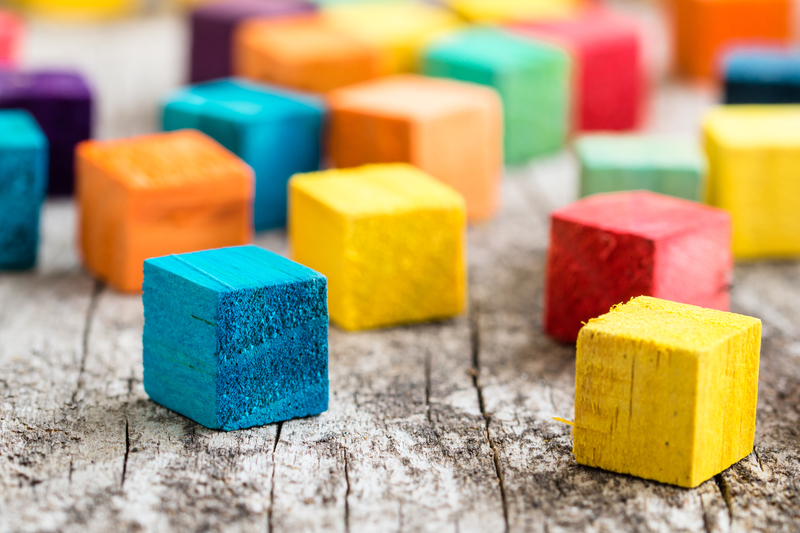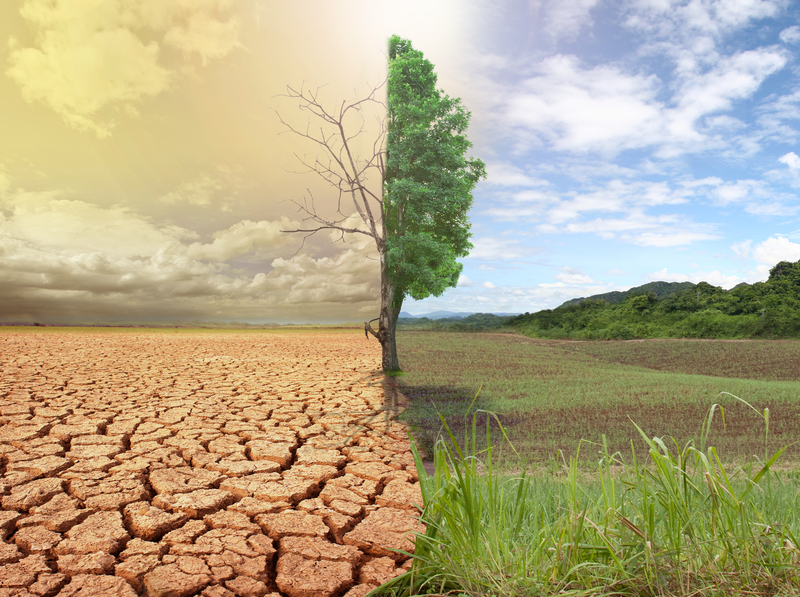Revolutionize Home Habits with Impactful Waste Prevention
Are you ready to embark on a transformative journey towards eco-friendly living? Adopting waste prevention at home goes well beyond recycling--it's about minimizing waste generation from the very start. In this comprehensive guide, you'll discover actionable tips, innovative solutions, and habit-shaping strategies to revolutionize your daily life and make a significant positive impact on the environment.
Why Waste Prevention at Home Matters
Waste management is a pressing global issue, but you can start making a difference right at home. Preventing waste at the source conserves resources, reduces pollution, saves money, and encourages sustainable consumption. Here's why it's crucial:
- Reduces landfill overflow and the associated greenhouse gas emissions.
- Saves energy that would otherwise be spent on producing, transporting, and disposing of products.
- Promotes mindful living and responsible consumption habits within the household.
- Enriches local communities by supporting sustainable businesses and practices.
By prioritizing waste reduction at home, we all play a pivotal role in protecting our planet for future generations.

Understanding Impactful Waste Prevention
Waste prevention (also known as source reduction) refers to any method that reduces the amount or toxicity of waste generated. Rather than dealing with trash after it's produced, the focus here is to not create waste in the first place. This can be achieved through conscious purchasing, efficient use of resources, and rethinking our needs.
Difference Between Waste Prevention, Reduction, and Recycling
- Waste Prevention: Avoiding waste generation entirely, such as using reusable items or buying in bulk.
- Waste Reduction: Minimizing the amount of waste created, e.g., composting food scraps.
- Recycling: Processing used materials into new products. While essential, recycling comes after reduction and prevention.
By emphasizing source reduction at home, we tackle the issue proactively and lay the groundwork for a cleaner, greener lifestyle.
Practical Strategies to Revolutionize Household Waste Prevention
Ready to be an eco-hero? Embrace these impactful waste prevention habits in your home to significantly reduce your ecological footprint and ease the burden on community waste management systems.
1. Mindful Shopping: Buy Only What You Need
- Plan your purchases: Make a weekly meal plan and stick to your grocery list.
- Avoid impulse buys: Ask yourself if you truly need an item before purchasing.
- Support package-free stores: Shop at stores offering bulk bins and bring your own containers and bags.
2. Opt for Durable & Reusable Products
- Invest in quality: Choose products designed to last, even if the up-front cost is higher.
- Use reusables: Switch to cloth shopping bags, glass or stainless steel containers, water bottles, and coffee cups.
- Repair before replacing: Mend clothes, fix appliances, and repurpose household items.
3. Smart Food Management & Composting
- Keep a food inventory: Regularly check expiry dates and plan meals around what you have.
- Store food properly: Use airtight containers and understand optimal storage for fruits and vegetables.
- Compost organic waste: Set up a home compost system to divert food scraps from landfill and create nutrient-rich soil.
4. Reduce Single-Use Plastics and Packaging
- Say no to disposables: Refuse plastic straws, cutlery, plates, and bags.
- Choose minimal packaging: Buy loose produce and products in recyclable or compostable packaging.
- Purchase in bulk: Reduces packaging waste and often saves money.
5. Upcycling and Creative Reuse
- Repurpose glass jars, tins, and bottles for storage or decor.
- Transform old clothes into rags, quilts, or reusable bags.
- Turn cardboard and paper waste into craft projects for kids.
6. Digital Decluttering and E-Waste Minimization
- Unsubscribe from junk mail: Reduce paper waste and clutter.
- Repair and donate electronics: Extend life or pass gadgets to those in need instead of discarding.
- Properly recycle e-waste: Use certified recycling centers for old phones, batteries, and computers.
7. Eco-Friendly Cleaning and Personal Care Routines
- DIY cleaning products: Make cleaners from vinegar, baking soda, and lemon--less packaging, fewer chemicals.
- Solid and refillable options: Switch to bar soap and refillable shampoo, conditioner, and cleaning sprays.
- Cloth alternatives: Use washable cleaning cloths and mop pads instead of single-use wipes.
Developing Lasting Waste Prevention Habits at Home
Forming new habits can be challenging, but with a little planning and persistence, you can make waste reduction a natural part of your routine. Here's how to build habits that stick:
- Start Small: Choose one or two habits to focus on initially. For example, commit to using reusable shopping bags for a month.
- Set Reminders: Post visual cues near the front door or on your fridge to help you remember new routines.
- Get the Family Involved: Make it a household challenge. Celebrate milestones and share progress together.
- Track Progress: Keep a simple journal or checklist to stay motivated and recognize achievements.
- Reward Yourself: Set sustainability goals and treat yourself (responsibly!) when you reach them.
Engage & Educate the Whole Household
- Host eco-friendly workshops: Learn together how to compost, upcycle, or make zero-waste cleaning supplies.
- Create visual guides: Hang sorting posters above bins so everyone knows what goes where and why.
- Set house rules: Establish clear, simple rules for waste prevention and reduction, like "no single-use water bottles."
The Environmental and Social Benefits of Home Waste Prevention
When you embrace impactful waste reduction practices at home, the benefits extend far beyond your immediate surroundings:
- Lower carbon footprint: Every item you don't buy, throw away, or send to landfill reduces emissions and conserves precious resources.
- Cleaner communities: Less waste means tidier neighborhoods and less litter.
- Healthier homes: Using fewer chemicals and disposables can improve air quality and overall well-being.
- Economic savings: Mindful consumption and repurposing save money for families and communities alike.
- Leadership by example: Inspire friends, neighbors, and your networks to follow your lead for a more sustainable future.
Innovative Tools and Resources for Waste-Free Living
Harness the power of technology and community to streamline your shift to impactful waste prevention:
- Apps for Zero Waste Living: Try mobile apps like Too Good To Go or OLIO to share extra food, or Refill to locate water refill stations near you.
- Online Groups & Forums: Join social media groups and online forums for tips, ideas, and support from fellow waste prevention enthusiasts.
- Local Libraries & Tool Shares: Borrow books, tools, and appliances instead of buying new--many communities offer lending libraries and tool banks.
- Compost Services: If home composting isn't feasible, explore local food scrap drop-off or curbside compost pickup programs.
DIY Projects: Get Creative with What You Have
- Homemade cleaning sprays and detergents: Reduce packaging and chemicals.
- Craft and upcycle days: Regularly schedule family activities to transform "waste" into treasures.
- Sewing and repairing clothes: Extend the life of your favorite wardrobe pieces.
Overcoming Common Barriers to Waste Prevention
Despite your best intentions, challenges can arise as you embark on your waste prevention journey at home. Here are ways to break through the most common obstacles:
Time Constraints
- Batch tasks: Prepare meals and snacks in advance to reduce packaging and food waste.
- Set up efficient systems: Keep reusable bags and containers in your car or near your front door.
Lack of Local Resources
- Connect with neighbors: Share resources and ideas to overcome limitations.
- Advocate for community change: Petition local supermarkets to reduce packaging or introduce bulk bins.
Family Resistance
- Lead by example: Show the ease and benefits of new habits, rather than imposing rules.
- Highlight savings: Track and share money saved with the family to encourage buy-in.

Measuring Your Waste Prevention Progress
Tracking your journey is a fantastic motivator. Here's how to assess your household's impactful waste reduction efforts:
- Conduct a waste audit: Review your garbage and recycling bins for a week. What items can be eliminated, reduced, or reused?
- Maintain a progress log: Note the frequency of shopping, food waste, and any changes in waste output.
- Celebrate milestones: Did you cut your waste in half? Involve everyone in celebrating through eco-friendly activities.
Conclusion: Making Impactful Changes Today for a Sustainable Tomorrow
Adopting waste prevention habits at home is about more than just reducing your trash--it's about reimagining the way we consume, live, and connect with the world around us. When every household takes responsibility for minimizing waste at the source, the collective impact is transformative. Start with one small change, involve your loved ones, and share your successes to inspire your community.
Ready to revolutionize your home habits with impactful waste prevention? The power to create a sustainable future is truly in your hands--one mindful habit at a time.